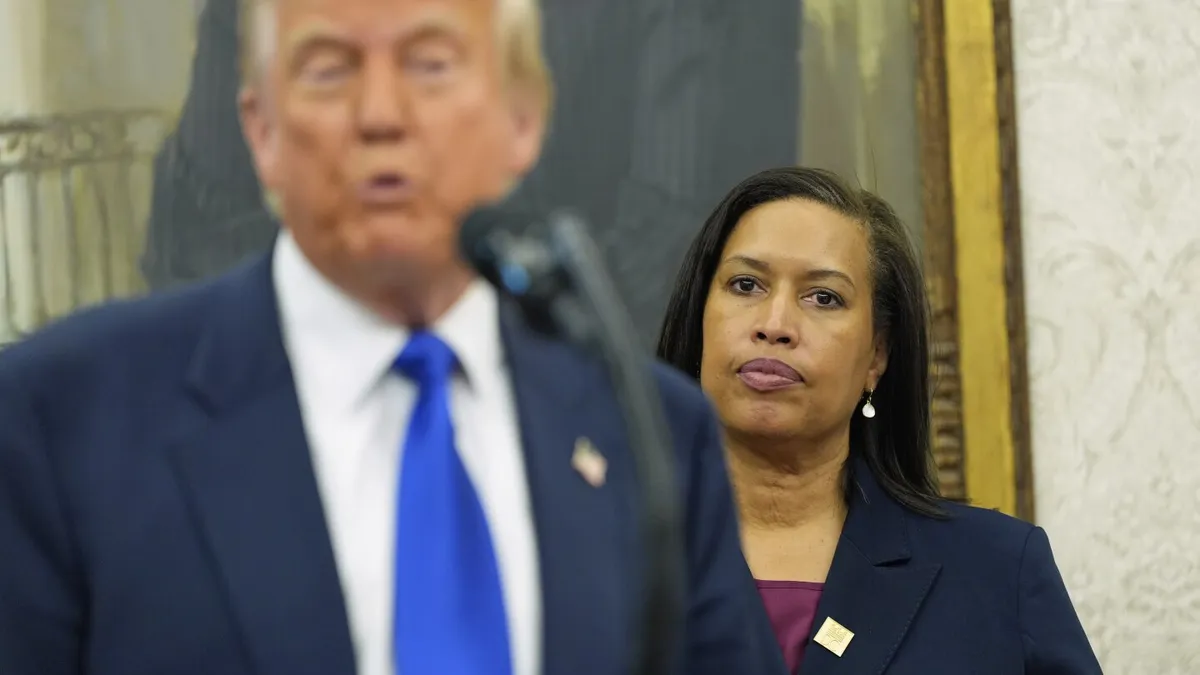
In a move that has stirred significant controversy, President Donald Trump has deployed National Guard troops across Washington, D.C., as part of his efforts to combat crime in the city. Mayor Muriel Bowser has responded to these actions with a measured approach, referring to Trump’s takeover of the city's police department and the activation of 800 Guard members as “unsettling and unprecedented.” She has characterized Trump's actions as part of an “authoritarian push,” yet her rhetoric remains less aggressive compared to other prominent Democratic leaders.
At a recent press conference, Bowser expressed her concerns regarding the federal government's intrusion into local governance. “While this action today is unsettling and unprecedented, I can’t say that, given some of the rhetoric of the past, that we’re totally surprised,” she stated. Bowser acknowledged the possibility that the additional resources could ultimately benefit the city, noting that the limited home rule allows for federal intervention in local matters. “My tenor will be appropriate for what I think is important for the District,” Bowser added, emphasizing her commitment to the welfare of D.C. residents.
The unique political situation of Washington, D.C., puts Bowser in a challenging position, particularly as Trump has threatened a complete takeover of the city, which is largely governed by federal oversight. The limited home rule agreement established in 1973 grants Congress the authority to alter D.C.'s autonomy, and with Republicans controlling both chambers, Bowser faces significant hurdles as they have already frozen over $1 billion in local spending.
In contrast to other Democratic leaders like California Gov. Gavin Newsom and Illinois Gov. JB Pritzker, who have taken a more combative stance against Trump, Bowser’s approach is one of cautious navigation. Democratic strategist Nina Smith commented on Bowser’s vulnerability, stating, “This is the sort of thing that can happen when you don’t have the powers that come with being a state.” Smith elaborated that Bowser's strategy reflects the difficulties of managing a city under federal control, especially when the current administration shows little regard for constitutional limits.
Bowser’s current stance marks a significant departure from her confrontational approach during Trump’s first term. Previously, she engaged in highly visible protests, including painting a massive “Black Lives Matter” mural near the White House. This time, she has taken steps to mitigate conflict, even meeting with Trump at his Mar-a-Lago resort after his election victory. Observers note that her shift in strategy aligns with the altered political dynamics, given the Republican majority in Congress and Trump’s assertive leadership style.
D.C. Councilmember Christina Henderson has weighed in on the legal implications of Trump’s executive order, which invokes Section 740 of the District of Columbia Home Rule Act to declare a “crime emergency” and facilitate federal control over the city’s police force. Henderson noted that challenging the declaration would be difficult, as it hinges on the definition of an “emergency.” She believes that while the prospects of a successful legal challenge are slim, it is important for the D.C. government to pursue it for the sake of precedent.
Despite the contentious backdrop, Bowser remains focused on ensuring that the federal surge in law enforcement resources is effectively utilized. During an interview with Fox 5, she and Police Chief Pamela Smith argued that additional federal officers could enhance public safety, especially given the city’s current police shortage of nearly 800 officers. Smith emphasized that the increased presence would positively impact the community.
However, some political analysts, including strategist Nina Smith, believe that Bowser needs to adopt a more assertive approach. “How many times is it going to take before she realizes this is not someone who has got the best interests of the city at heart?” Smith questioned, suggesting that it may be time for Bowser to push back more strongly against Trump’s actions.
Interestingly, despite the heightened tensions, statistics from the Metropolitan Police Department indicate a notable decline in violent crime in Washington, D.C. A recent report from the Department of Justice revealed that violent crime has decreased by 35% since 2023, marking the lowest rate in three decades.
As the situation unfolds, Mayor Bowser's response to the challenges posed by President Trump and the federal government will continue to be closely watched by both local and national observers.